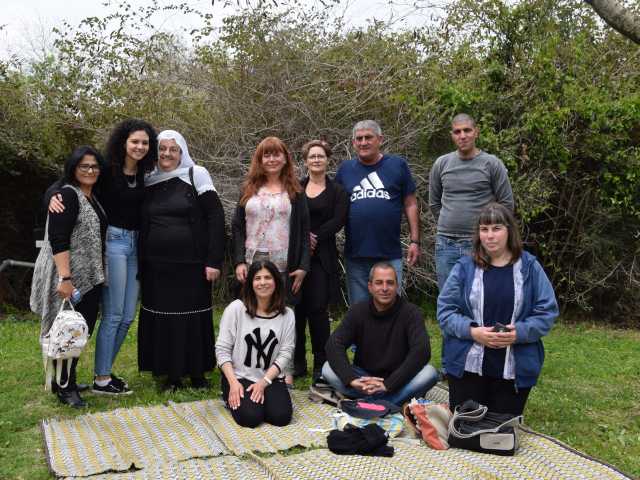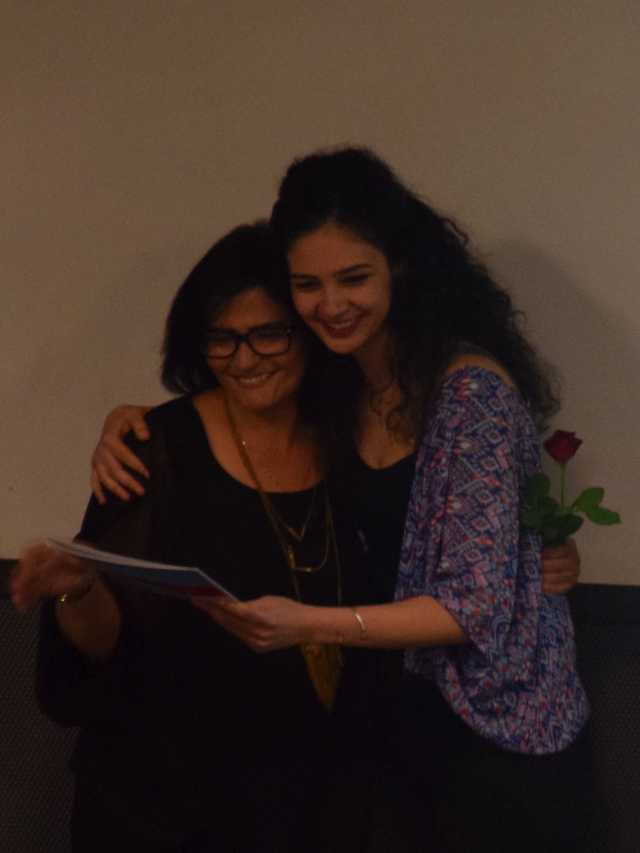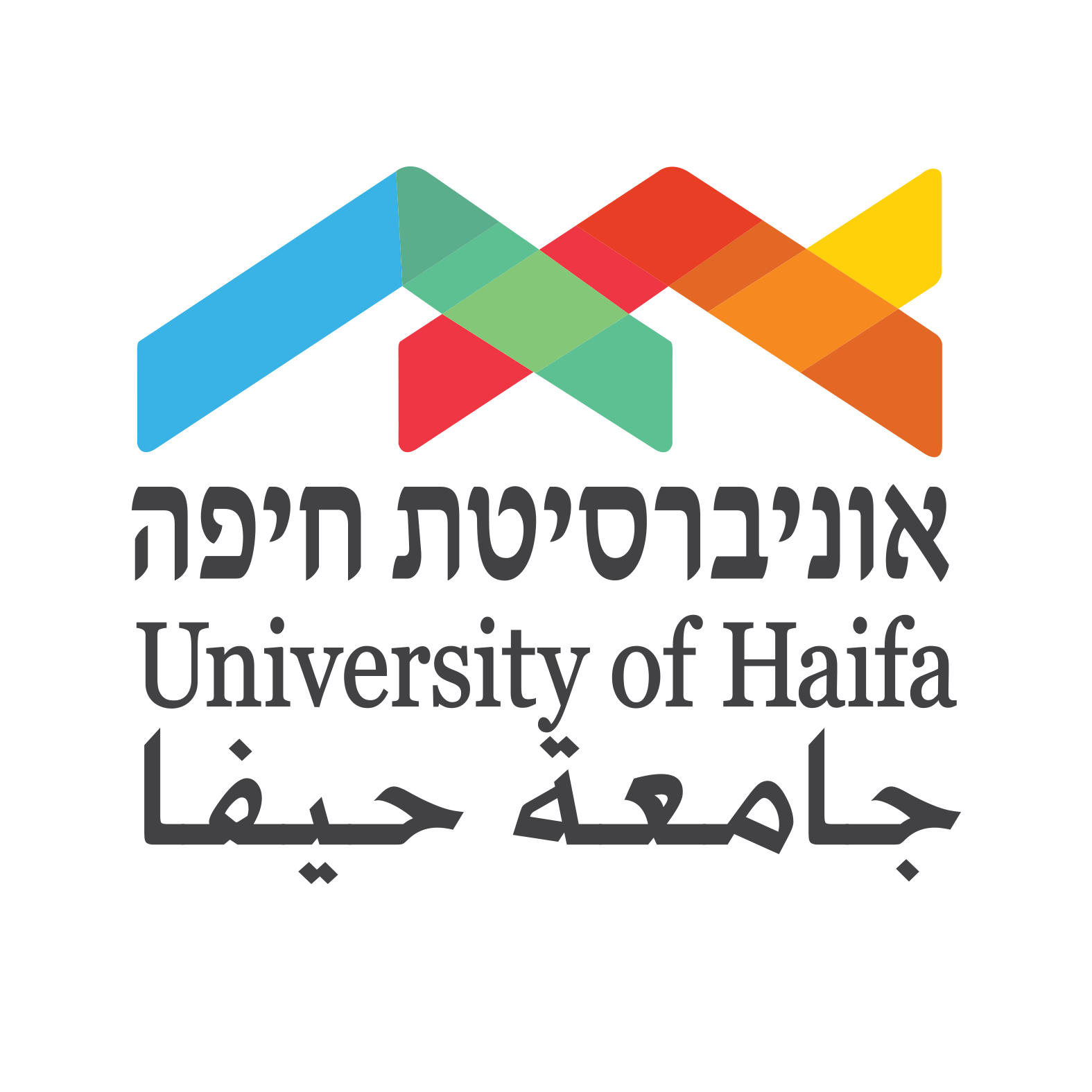
Interview with Lamma Mansour, BSc Psychology 2019, Rhodes Scholar

Lamma Mansour is the second UofH graduate to be awarded a prestigious Rhodes Scholarship in the past two years. At Oxford she intends to pursue her master’s in evidence-based social intervention and policy evaluation. She is following in her grandfather’s footsteps who studied economics there as a young adult.
Lamma Mansour (right) at the Access for All
graduation ceremony with her student Samiha
from Isfiya.
What brought you to the University of Haifa?
I came here when I was 18 years old from my hometown, Nazareth. The University provided me with campus accommodations and a spot in the Ofakim Program. Although I chose psychology as my major, I was able to take “a bit of everything” including anthropology, political science, communications, education, and gender studies – a mosaic like my lecture notes, which were in three languages, Arabic, Hebrew and English.
What are some of your most memorable experiences at the University?
In my second year, I had the privilege of serving as an instructor as part of the Access for All initiative, a program that opens the doors of higher education to adult learners from disadvantaged backgrounds. I taught a psychology class to 20 adults, many of them nearly twice my age. The classroom discussions often touched on difficult topics such as mental illness and addictions. My students have been a great source of inspiration for me, and all of them managed to complete the one-year course. Two of my students, who are recovering addicts, became certified to work with at-risk youths. I am grateful to the Access for All program for their faith in me and I hope to one day be able to contribute to the advancement of this incredible initiative.
What are your plans for the future?
I hope to connect the diverse fields of study that I learned at the University of Haifa to further investigate the best way to implement effective community-led interventions such as the prevention of gender based violence and mental illness stigmas in the Arab community. My research showcases the interdisciplinary approach I am interested in. Under the guidance of Prof. Zohar Eviatar of the Edmond J. Safra Brain Research Center for the Study of Learning Disabilities, I investigated how the multilingual brain responds to spoken Arabic as opposed to literary Arabic and the role of emotions in that process. I was able to bring my personal experiences and background to the academic arena and I hope to be able to continue to do this in the future.

